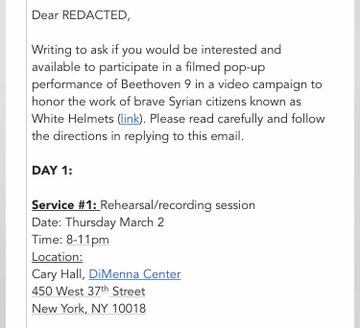Een ongelofelijk staaltje
volksverlakkerij waar je steil van achterover slaat: De Senaat heeft
een wetsvoorstel ingediend waarmee de macht van Trump zou worden ingeperkt om oorlog te kunnen
voeren, terwijl deze hem juist meer macht geeft om illegale oorlogen te
starten…!!
Landen die Al Qaida, IS of de Taliban
steunen kunnen met de vernieuwde Authorization for the Use of
Military Force (AUMF) wetgeving, gesteund door Republikeinen en
Democraten, simpel door de president als vijand kunnen worden aangemerkt,
waarna deze kan besluiten het betreffende land (of zelfs landen) aan te vallen, pas na 60 dagen wordt er dan geëvalueerd…… Uiteraard zal men dan niet
het onderste uit de kan halen en eisen dat de troepen worden
teruggetrokken, immers je loopt dan al snel de kans te worden
uitgemaakt voor laffe verrader van ‘de heroïsche VS troepen (ofwel de
grootste terreurorganisatie op aarde…)…..
Bovendien kan de president ook nieuwe
terreurgroepen aanwijzen als vijand in de oorlog tegen terreur……
In de lijst van 9 terreurgroepen die nu wordt gebruikt, is vreemd genoeg ook Al Qaida
Syrië opgenomen, terwijl deze terreurgroep vorig jaar nog van de VS zwarte lijst met terreurgroepen werd gehaald, blijkbaar ‘zijn de
banden wat verwaterd’, sinds dit feit bekend werd gemaakt…….. De president kan deze groepen zelfs aanvallen als ze zich naar de mening van bijvoorbeeld de CIA in een bepaald land verbergen (zonder deze soevereine staat daar eerst in te kennen, waar bijvoorbeeld Pakistan als kandidaat voor een illegale VS oorlog kan worden aangemerkt………)…..
Lees hoe de VS tot in de (verre)
toekomst oorlog zal blijven voeren en reken maar dat de
champagnekurken hebben geknald bij dit nieuws (in de directie burelen
van de wapenfabrikanten en het Pentagon wel te verstaan…)
SENATE
PROPOSAL TO CONSTRAIN TRUMP’S WAR MAKING WOULD ACTUALLY EXPAND
PERPETUAL WAR

Senator
Tim Kaine introduced a new authorized use of military force
resolution with Sen. Bob Corker. (Photo via AFGE on Flickr)
KEVIN
GOSZTOLA
23APR2018
A
new authorization for the use of military force proposed by
Democratic and Republican senators would further entrench the United
States in endless war. It would also streamline the ability of
President Donald Trump and future presidents to expand the “war on
terrorism” to additional countries and broaden a list of
“associated forces” that are “co-belligerents” of al-Qaida,
the Taliban, or the Islamic State.
Under
the proposed AUMF [PDF],
which was drafted to replace the 2001 and 2002 AUMFs still in effect,
military force against the Taliban, al-Qaida, ISIS, and “designated
associated forces” is renewed.
On
January 20, 2022, and every four years after, the president is to
submit a report on the “use of military force,” which includes a
“proposal to repeal, modify, or leave in place” the current AUMF.
It
removes some of the ambiguity previously in the phrase “associated
forces” by naming the groups: al-Qaida in the Arabian Peninsula
(AQAP), al-Qaida in Syria (including al-Nusra), the Haqqani Network,
and al-Qaida in Islamic Maghreb (AQIM).
When
the president determines that a “new organization, person, or force
is an associated force covered,” a report should be submitted to
the “appropriate congressional committees and leadership.”
A
similar procedure is to be followed when adding new foreign countries
to the list of places where the U.S. is at war. “New” countries
are any countries other than Afghanistan, Iraq, Syria, Somalia,
Yemen, and Libya.
The
AUMF proposal was put
forward by
Republican Senator Bob Corker and Democratic Senator Tim Kaine* with
the bipartisan support of Republican Senators Jeff Flake and Todd
Young and Democratic Senators Chris Coons and Bill Nelson.
In
1973, Congress passed the War Powers Resolution as a response to the
Vietnam War. The resolution was intended to ensure the President of
the United States could only deploy U.S. military forces abroad
through declarations of war, “statutory authorizations,” or in
the case of a national emergency.
What
the proposed AUMF would effectively do is cement Congress as the war
clerk for the Executive Branch. It would represent a complete
abdication of responsibility over matters of war, as granted by the
separation of powers in U.S. government. The president would come to
leaders of congressional committees with a report that is reviewed,
filed, and updated accordingly, with Congress’ only task to make
sure they can fit the latest war making into the parameters laid out
for perpetual war.
Trump’s
latest strikes against Syria renewed attention on Congress’ failure
to assert authority over war making by the Executive Branch. Several
Democrats, like Representative Nancy Pelosi, made process critiques
and argued there
must be an AUMF for Syria before Trump pursued more war. Yet, the
proposed AUMF does not really deal with the issue of military action
against sovereign countries.
It
does not provide authority for the president to use military force
against any nation state, but it also does not contemplate what
Congress should do if the president is engaged in actions, like the
strikes on Syria, which senators or representatives never approved.
Additionally,
the proposed AUMF grandfathers in the war in Yemen, where the United
States military has played an integral role in supporting a coalition
led by Saudi Arabia that has brutally attacked Yemenis and blockaded
civilians.
Senators
Chris Murphy, Mike Lee, and Bernie Sanders attempted to force a vote
on withdrawing U.S. military support for the war in Yemen because
Congress has not authorized war in the country. Corker took great
offense to this, and through the proposed AUMF, he and other senators
are ensuring Murphy, Lee, and Sanders cannot challenge U.S. military
action in Yemen again by retroactively approving war.
Out
of 535 members of Congress, Democratic Representative Barbara Lee was
the only
person to vote against
the 2001 AUMF. She previously opposed bombing Iraq in the 1990s and
committing U.S. troops to the North Atlantic Treaty Organization’s
intervention in Kosovo.
Lee
declared, “This resolution, even though it was focused on the World
Trade Center attack, is open-ended. It doesn’t have an exit
strategy; it does not have any reporting requirements. And the
president already has authority to use force [internationally for 60
days without congressional approval] under the War Powers Act. So
what was this about?”
Her
caution went unheeded by elected officials. The Executive Branch used
the open-ended AUMF to develop a targeted assassination program,
where the groups it believed it could attack with drones or other
aircraft under the AUMF were kept entirely secret from the public.
Lee
opposes the proposal from Corker and Kaine because she believes it
will “continue our state of perpetual war.”
“Rather
than reining in the Trump Administration’s blank check for war, the
Corker-Kaine AUMF would continue all current military operations,
allow any president to unilaterally expand our wars, and effectively
consent to endless war by omitting any sunset date or geographic
constraints for our ongoing operations. This legislation also further
limits Congress’s role in war making by requiring a veto-proof
majority to block military action from the president,” Lee
declared.
Republican
Senator Rand Paul also outlined
his opposition to
the proposed AUMF while he was on CNN on April 17. “It is a good
idea to debate whether we should be at war or not. Unfortunately, the
[AUMF] they’re putting forward actually expands the president’s
ability to commit war.”
He
continued, “For the first time, it will list six or seven groups
that we’re at war with. If you remember, after 9/11, we were at war
with those who attacked us and who aided and abetted them. But now,
this is for the first time gonna codify six or seven groups, maybe
10-15 countries that we can be at war in. Really it’s limitless.”
“If
we detect any of the groups having any activity in any country, the
president can go to war there. He just has to submit a notice saying,
hey guys, we’re now at war in a new country. And that to me is not
a limitation. It’s an expansion of war making, and I think, a huge
mistake,” Paul concluded.
Democratic
Senator Jeff Merkley opposes the
proposed AUMF for similar reasons. “This new AUMF has no sunset
clause – meaning it can be used indefinitely by President Trump and
his successors to continue expanding the scope and geography of U.S.
military action around the world. The absence of a sunset clause all
but guarantees that this AUMF will be stretched by the executive
branch to avoid coming to Congress for future authorizations, which
is completely unacceptable.”
“Even
more concerning, this legislation allows the president to
unilaterally expand the scope of the authorization, both in the
specific groups being targeted and in the countries in which the
United States takes military action. The clear constitutional vision
was for Congress and Congress alone to have the authority to initiate
war. This AUMF stands that on its head, giving the President that
power and leaving Congress with the impossible task of overriding
presidential actions.”
“I
cannot support an authorization that gives a blank check for endless
war and turns Congress’s power over to the president. The Senate
should indeed debate a new AUMF, but it must be one that has built-in
timelines, mandates congressional approval, and limits the scope of
the conflict.”
That
is, for the most part, the extent of public opposition to the
proposed AUMF, as of April 22.
Its
supporters, like former Democratic Party vice presidential nominee
Tim Kaine, actually contend it
will end the notion that the president has a “blank check to wage
war.”
Democratic
Senator Bill Nelson is gung-ho about the proposed AUMF, sounding like
President George W. Bush’s administration in the days after 9/11.
“Terrorists
groups such as ISIS pose a serious threat to our national security.
This bill will give the president the clear legal authority he needs
to target these groups in Iraq, Syria or anywhere else they may be
hiding,” Nelson said.
Efforts
to repeal and update the AUMF have occurred multiple times in the
past decade. Most prominently, in 2015, President Barack
Obama provided
legislation for
an AUMF that would cover strikes against ISIS. The proposal lacked
limitations like this recent proposal. Congress never voted on the
authorization, and Obama continued to rely on the 2001 AUMF to claim
authority for military action.
“Over
the last sixteen years, we have witnessed the consequences of
unfettered executive power in matters of war,” Lee stated. “Instead
of further endorsing perpetual war, we need to insist on an AUMF that
is narrow, clearly defined, and respects Congress’s constitutional
duty to debate and authorize military action.”
Senators
appear to be appropriately concerned about the ways in which Trump
could abuse his authority, unlike under the Obama administration. But
that concern seems increasingly likely to translate into a measure
that will transform Congress’ efforts to challenge the imperial
presidency into even more of a charade.
==================================
* Tim Kaine, de ex-running mate van hare kwaadaardigheid Hillary Clinton.




















